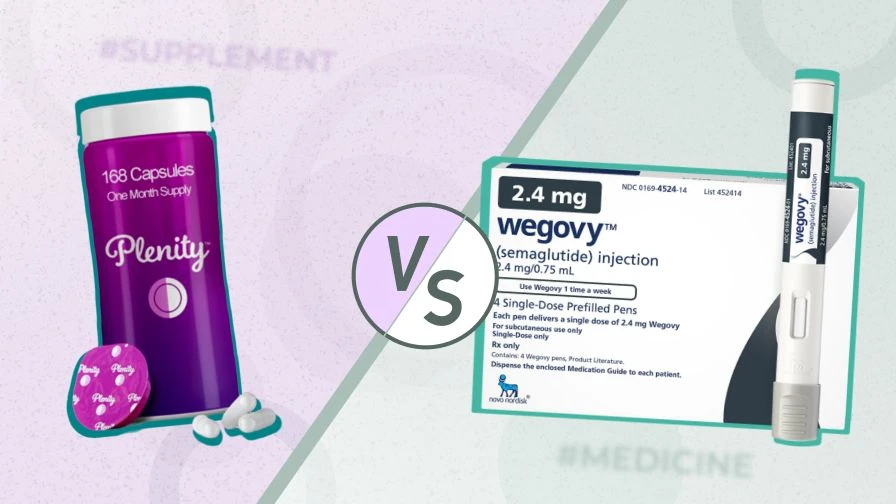Semaglutide tablets’ side effects are not much different from the side effects of Semaglutide injection. The main mild adverse effects include:
- nausea;
- vomiting;
- diarrhea;
- constipation.
In addition to the above, the tablets can cause abdominal pain and loss of appetite. Injections also have temporary effects such as swelling, redness and itching at the injection site. The rare reactions include allergies, namely a rash all over the body, severe itching, difficulty breathing, dizziness and swelling of the face, throat or tongue.
According to studies on diabetes treatment with Semaglutide for weight loss, side effects manifest when taking the drug with insulin. In this case, there is a risk of nausea, vomiting, constipation or diarrhea as mild adverse reactions, and hypoglycemia and increased heart rate as severe adverse reactions.
When using the drug, hypoglycemia has the following symptoms:
- increased sweating;
- tremor in the extremities;
- dizziness;
- migraine;
- blurred vision;
- strong thirst;
- increased urination.
Serious adverse reactions can include kidney problems, including symptoms of pancreatitis, persistent severe vomiting, and stomach pain. Reduced or blurred vision is also dangerous.
Usually, all effects go away after a couple of weeks when the body adapts to a new drug. So, you should pay attention to reactions’ intensity and duration. If the effects are strong enough and don’t disappear during this time, you should contact your doctor.
What is the relationship between Semaglutide and constipation?
Semaglutide constipation is one of the reasonably common adverse reactions of the body. You can have it while taking tablets and injections. It is one of the main possible side effects and disappears on its own after a period of body adaptation.
Semaglutide and diarrhea: what is the relationship between them, and is it normal?
There is a relationship between Semaglutide and diarrhea. Uncontrolled bowel emptying is one of the reasonably common side effects of using the drug. In this case, you shouldn’t panic and refuse to take the drug since diarrhea is not a dangerous body reaction and passes after a while.
Semaglutide side effects and fatigue: how long does it last, and how to get rid of it?
Such Semaglutide side effects as fatigue are the main adverse reaction. Fatigue is an adverse reaction to injections, but not to tablets. This effect is also temporary and doesn’t pose a health risk. The increased fatigue usually goes away after a couple of weeks.
However, you should remember that long fatigue combined with other symptoms (abdominal pain) can indicate kidney problems. So, if you take the drugs to treat the gastrointestinal tract, it would be better to contact a doctor for advice and further diagnostics.
Semaglutide side effects and depression: is it possible?
The manufacturer’s description doesn’t mention among Semaglutide side effects depression. However, in some cases, the drug can lead to increased excitability or irritability.
Depression is a relatively rare side effect, so if you experience unusual strong emotional outbursts, including anger, depression and anxiety, you should consult your doctor.
Is there a relationship between Semaglutide side effects and cancer?
According to a study published by the National Library of Medicine, you shouldn’t use Semaglutide if you have thyroid cancer. The trials confirm that Semaglutide side effects and cancer have no relationship.
Semaglutide and NASH: can you use the drug to treat this disease?
NASH is non-alcoholic steatohepatitis, a form of fatty liver disease. A new study published in March 2021 proved the benefit of Semaglutide with NASH. Although the second phase of the trials is still in progress, scientists note that this drug is extremely promising for fatty liver disease, especially when combined with other medications.
What do Semaglutide and pancreatitis have in common?
Pancreatitis is a rare but dangerous side effect. During a long study on the relationship between Semaglutide and pancreatitis, experts changed their opinion depending on the duration of the drug intake.
As a result, it was found that Semaglutide doesn’t lead to pancreatitis but can cause symptoms similar to those of this disease (diarrhea, abdominal pain, bloating, nausea and vomiting). That’s why it is very important to undergo a complete diagnosis before taking this drug.
Conclusion
Most side effects of Semaglutide are mild and harmless for your health and go away on their own. The reason for their appearance is the body’s adaptation to a new drug. According to available data, the benefits of using the medicine are much greater and include positive effects on metabolism, blood pressure and heart blood vessels.










